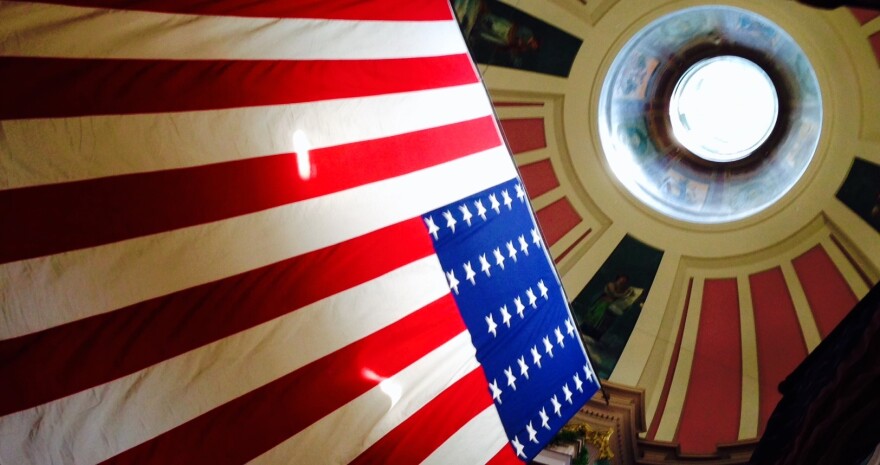A hundred years ago this month, as America was entering World War I, a writing contest was held to define America's political faith. The winning entry by William Tyler Page became known as the American Creed.
We are still taking about those essential American values.
Immanuel Simmons is a college student at Christian Brothers University. He has got a good handle on basic American ideals. "I think about freedom, justice, and equity for all."
A hundred years after Page wrote those words in his creed, people today are still figuring out what they really mean. That last one – equity, or equality – has come up a lot lately.
Micah Greenstein, Senior Rabbi at Temple Israel, says it's the fundamental debate of our time. "While we may have all been created equal, we don't end up equal."
The American Dream stems from those ideals: hard work leads to a better life. But Greenstein says that inequality makes the dream harder to access for some. Generational poverty, for example, affects a key component for success. And that is hope.
"People think that those in impoverished neighborhoods, who buy lottery tickets do so because they’re ignorant," Rabbi Greenstein explains, "but the facts show from studies that the reason why a lot of people of lower incomes buy lottery tickets is because they’ve given up hope of a better life and they figure, what do I have to lose?"
For many, hope starts with education. Gabby Salinas, was born in Bolivia, but has been a US citizen for more than 20 years. She's now a scientist at the University of Kentucky. "Access to Education is a big, big portion of it because you know education is a big equalizer. If you have an education, you can go on to have any job that you want."
For many immigrants, education and jobs are the direct route the American Dream.
"Part of the American Dream is to be the best version of who you are," says Gina John, an advocacy coordinator for Latino Memphis. "For so many individuals, who can’t access so many things that they need to be the best version of themselves, I feel like they’re just so disadvantaged and that they sometimes might come out and find themselves making American Dream but, at the same time, so many don’t and not because they’re in capable just because they are not given the appropriate resources to do so."
Still, others believe that resources are not necessarily the most important part of the American Dream.
Nancy Harper, a United States Army veteran, says that hope must be coupled with focus and determination. "When I was growing up, I was born and raised in Mississippi. All I could see around my house was cotton fields. I could not see how am I going to get out of this and to be what I want to be. So, my mom and dad would talk to us and say, 'you can be anything you want to be. You just have to have a desire to do that.'"
The meaning of the American Dream is constantly evolving, along with people's perspectives of it. Nonetheless, freedom, justice, equality and humanity remain our core values, a century after the country came to embrace them.
This story is in conjunction with a PBS documentary, "American Creed," airing Tuesday (2/27/2018) night at 8:00 p.m. on WKNO-TV Channel 10.
https://www.youtube.com/watch?v=DmlbiAsJp1c&feature=youtu.be


